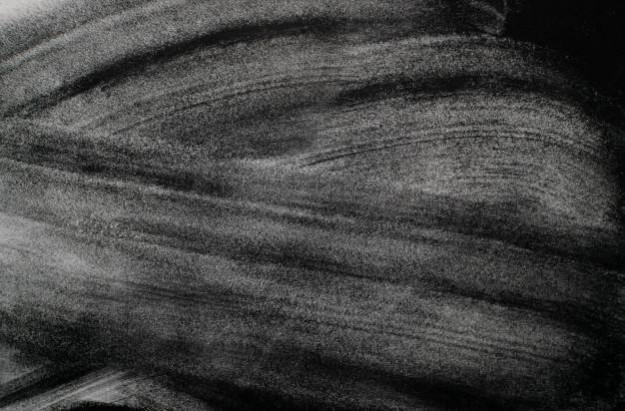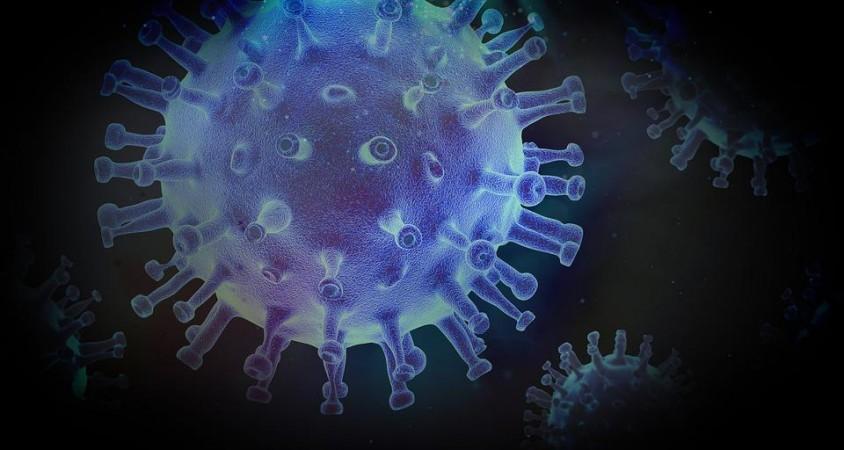A common safety measure imposed across several countries during the course of the COVID-19 pandemic has been the closure of gyms and recreation centers. Several large-scale sporting events such as the Tokyo Olympics were also postponed to prevent the spread of the novel coronavirus. Bringing some joy to fitness enthusiasts and sports persons, a new study has found that liquid chalk—a substance used in gyms for better grip—can completely kill the pathogenic influenza A viruses and the SARS-CoV-2 virus.
According to researchers from the University of Melbourne, liquid chalk functions as an antiseptic against the two infectious viruses. It was found that the addition of the substance before and after viral contact resulted in a significant decrease in the recovery of the viruses from the surfaces they were applied on. The study was published in the journal mSphere.
"Our findings can help inform athletes and gym-goers that they can stay safe when competing and working out, particularly in large-scale competitions, such as the upcoming Olympic Games in Tokyo," said Dr. Jason Mackenzie, lead author of the study, in a statement.
A Common Gym Product to the Rescue?

Over the last 19 months, studies have proven beyond doubt that contact with infectious droplets immediately after being discharged on a surface can result in COVID-19 infection. For example, contact with droplets expelled through the cough of an infected person can lead to the contraction of the disease. Therefore, instant neutralization of the pathogen in such instances can reduce the chances of SARS-CoV-2's spread.
According to Dr. Mackenzie, the inspiration for the current study came from conversations with his daughter—a skilled rock climber set to participate in the Tokyo Olympics. These exchanges led to the author investigating whether liquid chalk can block the spiked-virus' transmission. "Both of my daughters were lamenting the closure of gyms at the beginning of the pandemic, particularly my daughter Oceania who was trying to train for Olympic qualification," quipped Dr. Mackenzie.
Hand sanitizers with 60 to 80 percent alcohol have been shown to destroy SARS-CoV-2 effectively. Liquid chalk comprises magnesium carbonate—an inorganic salt—and alcohol. The concentration of the alcohol in it is around 40 to 80 percent (usually ethanol, methanol, or isopropanol). After application, the alcohol evaporates quickly; leaving being a white layer of dry chalk on the hands. It is used in gyms to improve grip while handling weights and also by athletes such as gymnasts.
Evaluating Activity of Liquid Chalk

For the study, the team examined whether liquid chalk can act as an antiseptic against human viruses such as the SARS-CoV-2, influenza virus (H1N1/IAV), and norovirus. "There was an assumption that liquid chalk could act as an antiseptic as it has a really high alcohol content, but until now, there was no scientific evidence to support it," remarked Dr. Mackenzie.
The authors evaluated two different approaches to illustrate two scenarios encountered in a gym environment. First, they examined the application of the substance on the surface that was already tainted with the virus. Second, they observed the capacity of liquid chalk to stop viral transmission after it was applied to the surface, and the virus was subsequently added to it. Four different types of chalks (products) were tested in the experiments.
Strong Antiviral Action Against SARS-CoV-2
As theorized, the chalk products showed strong neutralization activity against influenza and SARS-CoV-2 viruses. While three chalks exhibited incredible effectiveness, the fourth was found not to function on the same level as the others. In experiments where alcohol was allowed to evaporate before the addition of the virus, recovery of the virus was low; suggesting that dried chalk offered a virucidal activity.

In order to confirm the antiviral activity of the alcohols (including those used in liquid chalk formulations), viral preparations were treated with different types and amounts of alcohols. All the alcohols displayed virucidal activity against them. They found that both isopropanol and ethanol were lethal against the IAV and SARS-CoV-2 at moderately low concentrations (40 percent for IAV and 20 percent for SARS-CoV-2).
With the alcohol content in chalks being proprietary information, the scientist avered that it can only be posited that if the concentration of alcohol in the products is lower than the tested amounts, then it is possible that the antiviral effect can be attributed to the chalk part of the mixture.
However, liquid chalk was found to have no effect on norovirus. "We were surprised, however, that norovirus - a virus that causes gastroenteritis - showed complete resistance to the liquid chalk," noted Dr. Mackenzie. Though chalk may not be able to deal with the norovirus, the authors believe that the findings of the study may help in decision making regarding the closure or opening of gyms in the future on account of COVID-19.

















